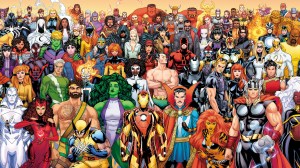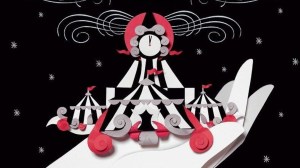After a three years hiatus, Sherlock finally returned in 2017 with a new season. Last night saw the season come to an end in “The Final Problem,” and fans have already begun to speculate as to whether Sherlock has a future.
Videos by ComicBook.com
There’s no way to know for certain if Sherlock will continue, though creators Steven Moffat and Mark Gatiss seem to have the desire to return for more. However, that desire may not be to Sherlock‘s credit. “The Final Problem” feels like an ending that gives Sherlock a new identity in the wider mythology of Sherlock Holmes, and perhaps that’s best left alone.
“The Final Problem” had several hallmarks of a series finale that make it feel like the natural conclusion to Sherlock. In the series premiere episode, “A Study in Pink,” Detective Inspector Lestrade observes, “Sherlock Holmes is a great man, and I think one day if we’re very, very lucky, he might even be a good one.”
At that point in the series, Sherlock was still incapable of most social niceties, including remembering the names of those around him and saying “thank you.” Sherlock manages to do both in “The Final Problem,” thanking Greg for his assistance in cleaning up Euros’ mess. The interaction prompts Lestrade to remark to another officer that Sherlock isn’t just a great man, but also a good one, using the callback to “A Study in Pink” as a measuring post for how far Sherlock Holmes has developed as a character.
Sherlock’s character development is also revealed by his new status quo after meeting his sister again for the first time. The once reclusive Sherlock now has an extended family that consists of both regular meetings with his biological family, including both siblings Mycroft and Euros, and his extended adoptive family of John Watson and baby Rose. Where Sherlock’s brilliance once meant that he kept the rest of the world at an arm’s length, floating above them much like Euros does in her fantasy, he now accepts the network of human bonds that he has somewhat accidentally built around himself throughout his life.
Mary’s closing monolog in “The Final Problem” has the feel of the show’s creators speaking through one of their characters as they look back on their work and offer an assessment and statement of worth. The statement isn’t necessarily meant to be a judgment of their own adaptation of Sherlock and Watson, but of why the characters were worthy of modern attention at all.

Should Sherlock End With ‘The Final Problem?’
“I know who you really are: a junkie who solves crimes to get high, and the doctor who never came home from the war,” Mary says, offering the Sherlock creators’ analysis of the characters of Sherlock and Watson through the insight of a wife and friend. “Who you really are, it doesn’t matter. It’s all about the legend, the stories, the adventures. There is a last refuge for the desperate, the unloved, the persecuted. There is a final court of appeal for everyone. When life gets too strange, too impossible, too frightening, there is always one last hope. When all else fails, there are two men sitting arguing in a scruffy flat like they’ve always been there, and they always will. The best and wisest men I have ever known, the Baker Street boys, Sherlock Holmes and Dr. Watson.”
That this metatextual case for the importance of Sherlock Holmes stories seems opposed to the entire premise of Sherlock Season 4 doesn’t change the fact that this monolog – delivered over a montage of Sherlock and Watson’s future cases and continued friendship, as well as Sherlock’s visits with Euros – is a summation of everything Sherlock has come to be about.
Holmes’ growth as a character and this statement of why his stories matter both serve to give Sherlock a new relevance in the character’s mythology. Where Sherlock could once be summed up as “Sherlock Holmes if he lived in the 21st century,” it is now positioned as “Sherlock Homes: Year One.” Sherlock is about how the Sherlock Holmes first introduced in 2010’s “A Study In Pink” grew up to become the Sherlock Holmes of Sir Arthur Conan Doyle, at least in character if not in chronological placement. This is a context that Gatiss seems well aware of it.
“I think what has actually happened is we have now done the story of how the Sherlock Holmes and Doctor Watson that you’ve always known became those men,” Gatiss said at a press event. “It’s actually a backstory and we never intended it to be, but the reason to leave it at that place is that actually if we do come back — and we’d love to come back — then we could have it absolutely start with a knock on the door and Sherlock saying, ‘Do you want to come out and play?’”
While “The Final Solution” may be a great stopping point for Sherlock, Gatiss here has the right idea for what to do should he and Moffat return to Sherlock again. Despite Mary’s monolog pointing out that who Sherlock and Watson are isn’t all that important compared to the adventures they embark on, Sherlock‘s fourth season was bogged down by plots that dealt specifically with questions about Sherlock and Watson’s identities. Sherlock Season 4 traded mystery stories for soap opera, complete with melodramatic death scenes, amnesia, and secret siblings.
Perhaps Mary’s monolog is really meant to show that Sherlock is over that phase now. Sherlock‘s “Baker Street Boys” are now fully formed and able to participate in the kind of adventures that fans should expect from a Sherlock Holmes story.

If Sherlock does return again then it should dispense with the pretense of these slow burn stories with shocking twist reveals that are casually undone within the span of the next episode’s first act. Let it be an episodic adventure series about a very clever man who solves mysteries and his close friend who keeps him grounded and helps him see the things he would otherwise see through.
Otherwise, while Sherlock Season 4 wasn’t quite what many were hoping for, “The Final Problem” is as serviceable of a sendoff as Sherlock is likely to get.









